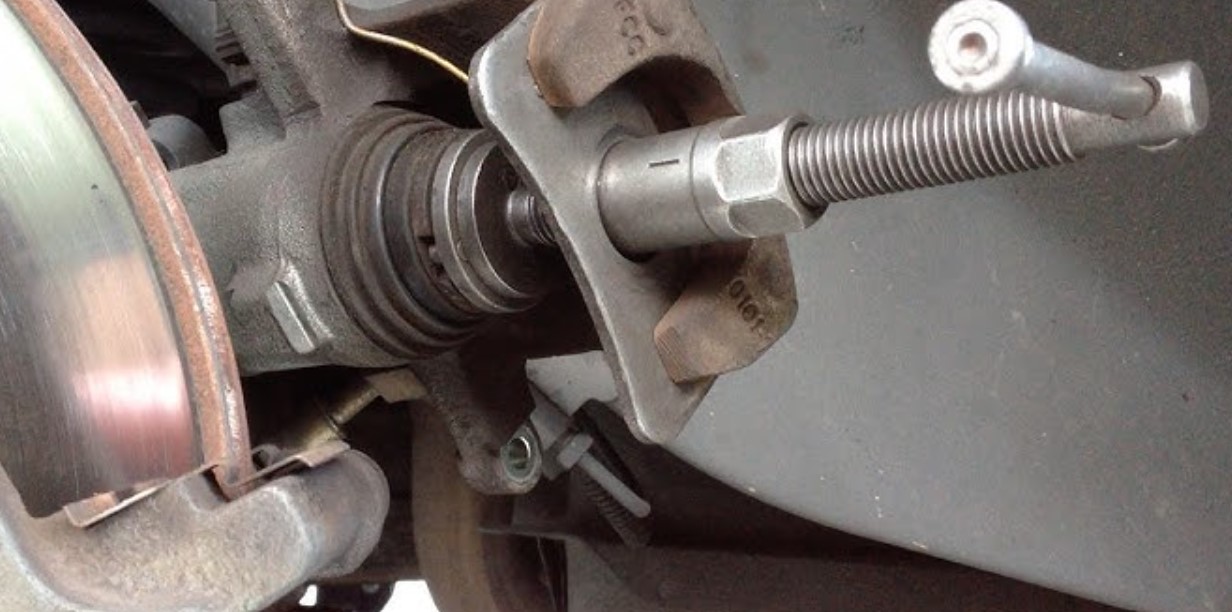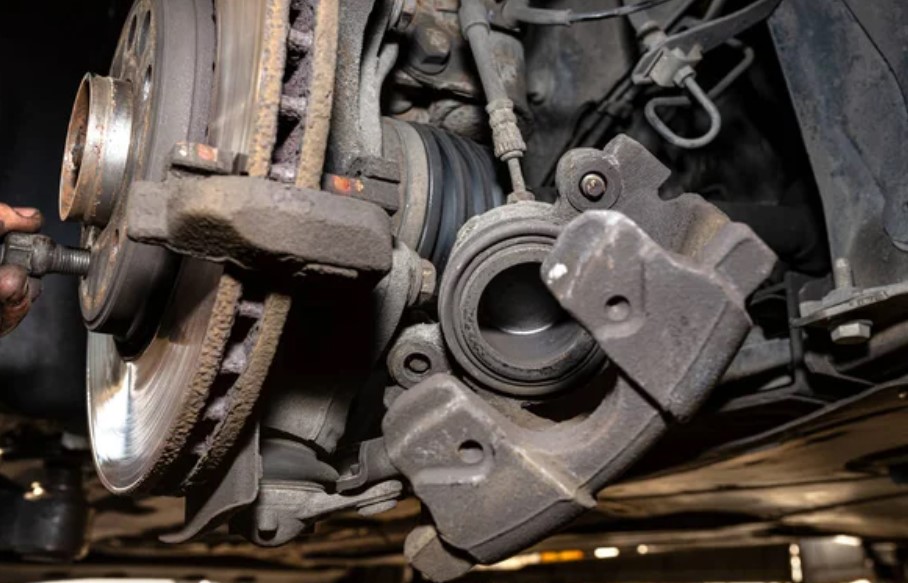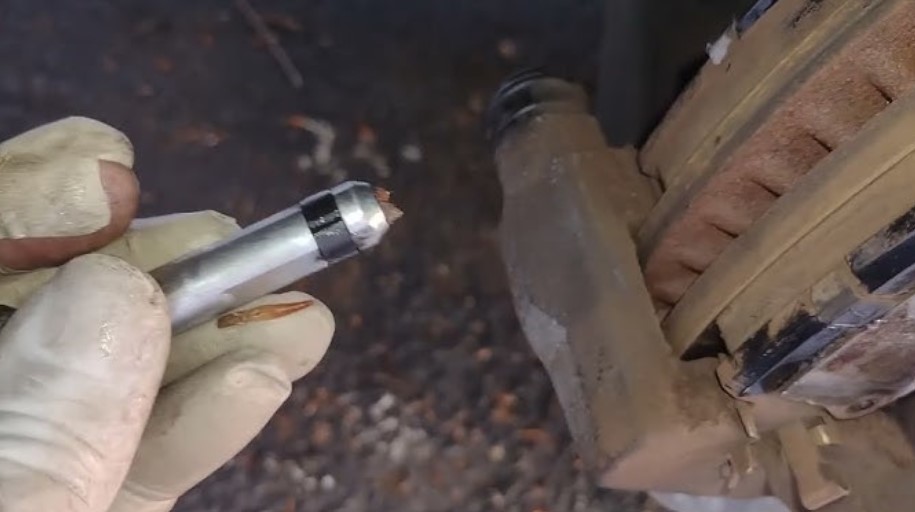What Grease to Use on Brake Caliper Pins?

Although they are a rather inconspicuous part of your vehicle, brake caliper pins significantly ensure that your brakes are safe and completely compelling. Not only is it essential to ensure that all of the appropriate brake caliper pins are correctly placed, but it is also essential to ensure that they are adequately maintained. Greasing the pins in your brake calipers regularly is one of the most effective methods. But with what exactly?
When you need to oil the caliper pins on your brakes, you should look for a high-temperature grease that can resist the high levels of heat and friction generated by the brakes. The Permatex Ceramic Extreme Brake Parts Lubricant is widely considered the industry standard for brake caliper pin grease; however, several other excellent choices exist.
The last thing you want to happen is to hear rattling from your brakes and then figure out that the problem is rusted or worn-out brake pin calipers. Because of this, we will provide you with our top suggestions for grease to simplify the maintenance process and answer frequent concerns, such as why it is required to oil the pins in your brake calipers and how to do so.
Top Grease Recommendations for Brake Caliper Pins
The correct supplies, which will make short work of this messy process and get the job done efficiently, are the first step in performing regular maintenance on your brake caliper pins.
When looking for the best grease to put on brake caliper pins, you’ll want to ensure that the lubricant is a high-temperature grease that can handle heat of at least 400 degrees Fahrenheit. This is the temperature that the brakes of the typical automobile reach on a basic commute, so the grease you choose must have the ability to withstand heat of this magnitude.
Several companies provide grease solutions that may be used for the pins in brake calipers. Still, our research has shown that just a few of these companies are constantly suggested as the most excellent choices.
The following is a list of our top four suggested greases for your brake caliper pins. These greases will keep your brake caliper pins clean and working for years at a relatively cheap cost.
- Lubricant for Extreme Ceramic Components of the Permatex Brake System
- CRC 05359 is an 8-weight-ounce jar of brake caliper synthetic grease.
- 0.5-ounce bottle of the Permatex 85188 Ultra Disc Brake Caliper Lube.
- Grease for Automotive and Marine Applications by Mission
Because several sources recommend each of these products as the top brake caliper pin grease, you can be confident that you will receive your money’s worth from this very little yet critically important expenditure.
Should the Pins in the Brake Calipers of a Vehicle Be Greased?
We can’t blame you for questioning whether something as little as a brake caliper pin has to be cleaned and oiled regularly; after all, maintenance is always crucial for ensuring the lifespan of your vehicle.
You should lubricate the brake caliper pins on your vehicle every 12,000-15,000 miles or once a year to avoid excessive and early wear and tear on your brake pads.
It should come as no surprise that brake pads are one of the most often changed automotive components because of how frequently they are used and how much pressure they are put under throughout every drive. However, this does not imply that we should allow them to wear out any more than is required, and one way to prevent this is to grease the pins in your brake calipers.
When there is very little or no lubrication on a brake caliper bin, the bolts will have difficulty moving along the caliper, preventing the brakes from properly rubbing on the rotor. Consequently, the pad wears unevenly, and it also has the potential to reduce the effectiveness of the brake by preventing the cushions from making complete contact with the rotor surface.
Another possibility is that the pins will get affixed to the rotor, which will cause the brake pads to remain in continuous contact with the rotor and significantly increase the amount of heat and friction the pads experience. In addition, this will cause the place to wear down far faster than it should have over time.
In the end, you will want to oil and lubricate your brake caliper pins frequently for the sake of your brake pads, which may cost you anywhere from $30 to $150 only in components to replace unless the user manual that came with your automobile directs you to do anything else.

Can You Grease the Brake Caliper Pin Yourself?
When dealing with something as significant as brake caliper pins, you may be tempted to believe that lubricating those pins is a job that is better left to a trained expert.
You may take your vehicle to a professional mechanic and pay them for this work. Still, if you have the appropriate equipment and expertise, you can complete this task independently and save yourself the time and money you would have spent.
You are going to need the following things, both in terms of equipment and materials:
- A jack for cars
- The combination of a socket wrench and a socket set
- A device known as a brake caliper.
- Your preferred product for making grease.
- The use of mitts
- Towels that are devoid of lint
- A brush made of wire
Once you have all these components, the next step is to jack up your vehicle and support its weight so that you may remove the tire you want to change and access the braking components, namely the brake caliper pins.
Before removing the brake caliper pins for greasing and cleaning, you must loosen different brake components using your socket wrenches. These components include the top and bottom caliper mounting pins and the slider pins.
When cleaning the pins, use the lint-free cloths to wipe them out, then use the wire brush to scrub away any rust gently. Finally, coat the nail with grease, then reinstall all the braking components you took off.
Final Thoughts
Keeping the pins in your brake calipers lubricated is essential to routine vehicle maintenance. This will help you from wearing out your brake pads faster than is necessary and save you from having to replace them more often than is required. Although we suggest greasing them once a year, vehicles stored in hot, dry climates or driven seldom may last longer without needing to be re-greased than vehicles stored in snowy or rainy climates or used regularly.
It is also advised that you do this work with high-temperature grease that can resist the heat by your brakes. We suggest that you seek the help of a professional if you do not possess the necessary equipment or skills to do this work.
